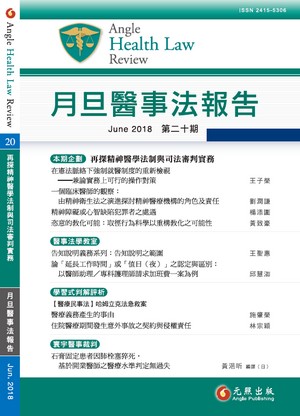精神障礙或心智缺陷犯罪者之處遇【本期企劃】 試閱
Forensic Treatment of Mentally Disordered or Mentally Disabled Offenders
2006年刑法歷經修正後,對於精神障礙或心智缺陷犯罪者的監護處分,由3年得以延長為5年外,也以社會危險性作為宣告監護的要件,並且更為著重監護處分之治療目的。然而,對於監護處所與處分的原則仍有許多爭議的空間,本文也指出治療併有人格障礙之犯罪者的困難。至於智能障礙或發展性障礙者應以教養機構為適當處所,且審判中得以先行宣告監護處分,以利病人之治療與社會復歸,本文認為,監護處所及監護處分的執行應適用比例原則,而多元介入與彈性的監護模式,如社區治療,以及整合刑事司法和精神衛生、特教體系的治療性司法,是促進精神障礙或心智缺陷者社會復歸的重要方向。
After the amendment and enactment of the Criminal Law in 2006, the custody of mentally-disordered or mentally-disabled offenders could be extended from three years to five years. Dangerousness to society becomes the requisite for the court to the decision of custody. Present statues place more emphasis therapeutic care than commitment. However, there is still much room for controversy on the appropriate site and the principle of custodial care. Meanwhile, this article presents the dilemma of the treatment of a person with a personality disorder, argues that offenders with intellectual or developmental disabilities should be appropriately committed within institutions but not psychiatric hospitals. The author suggests custodial care could be raised during the trial to facilitate the treatment and rehabilitation of the patient. The author also believes that the principle of proportionality should be applied to the practice of custodial care. Involvement of multi-disciplines, flexible treatment models, such as community treatment, and the therapeutic-justice principle that integrates criminal justice, mental health and special education, are promising directions for the rehabilitation of those mentally-disordered or mentally-disabled offenders.
032-043






